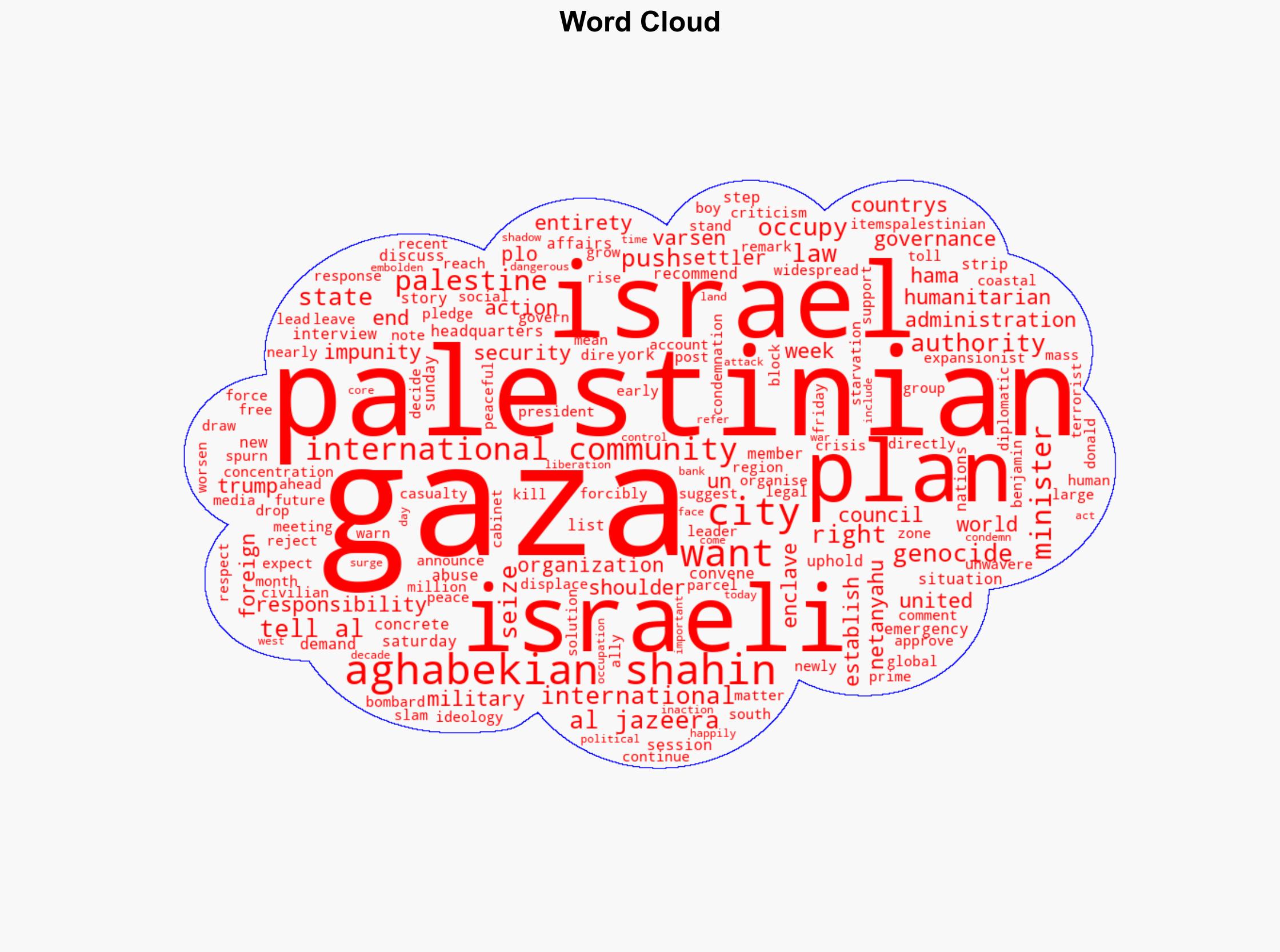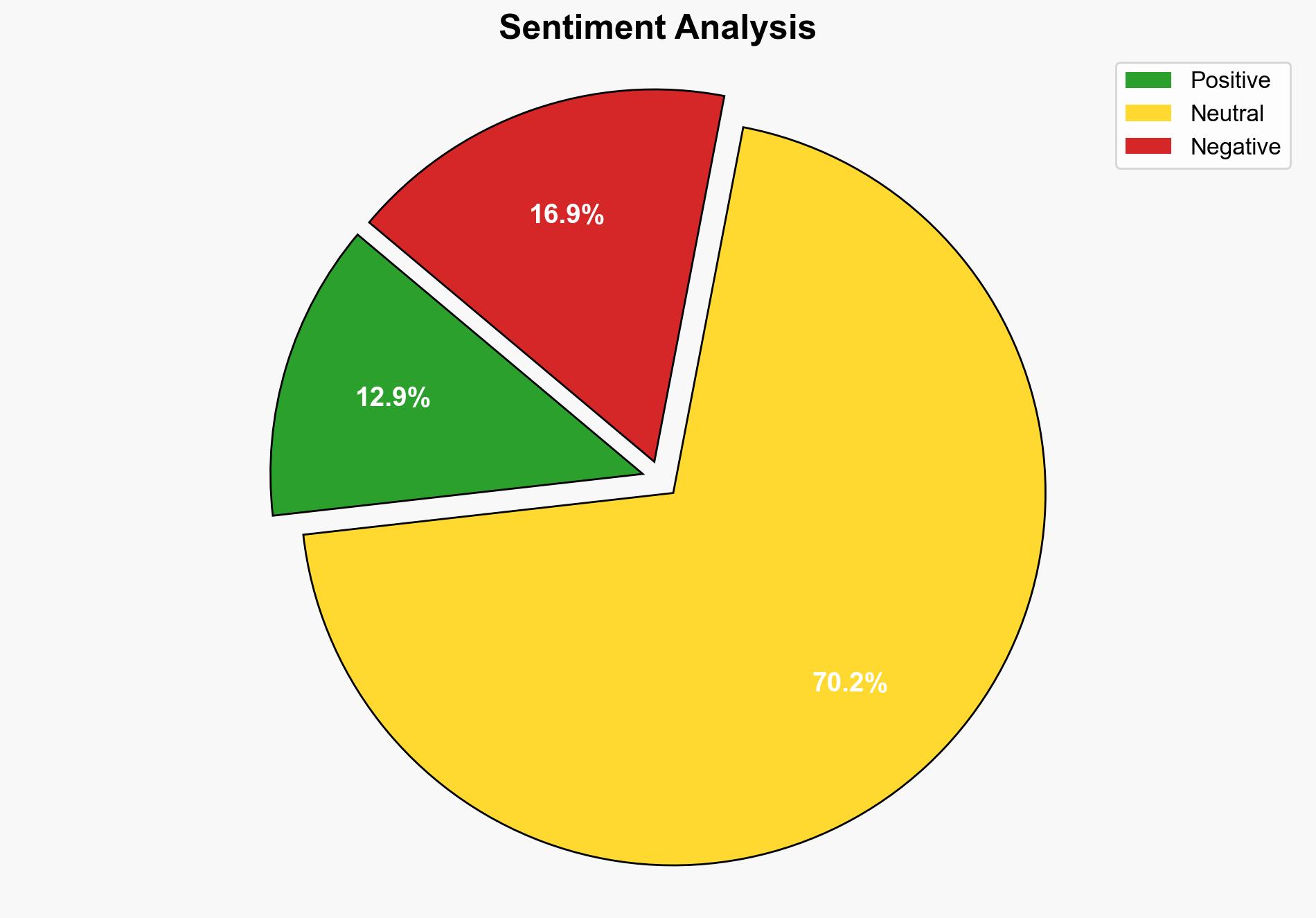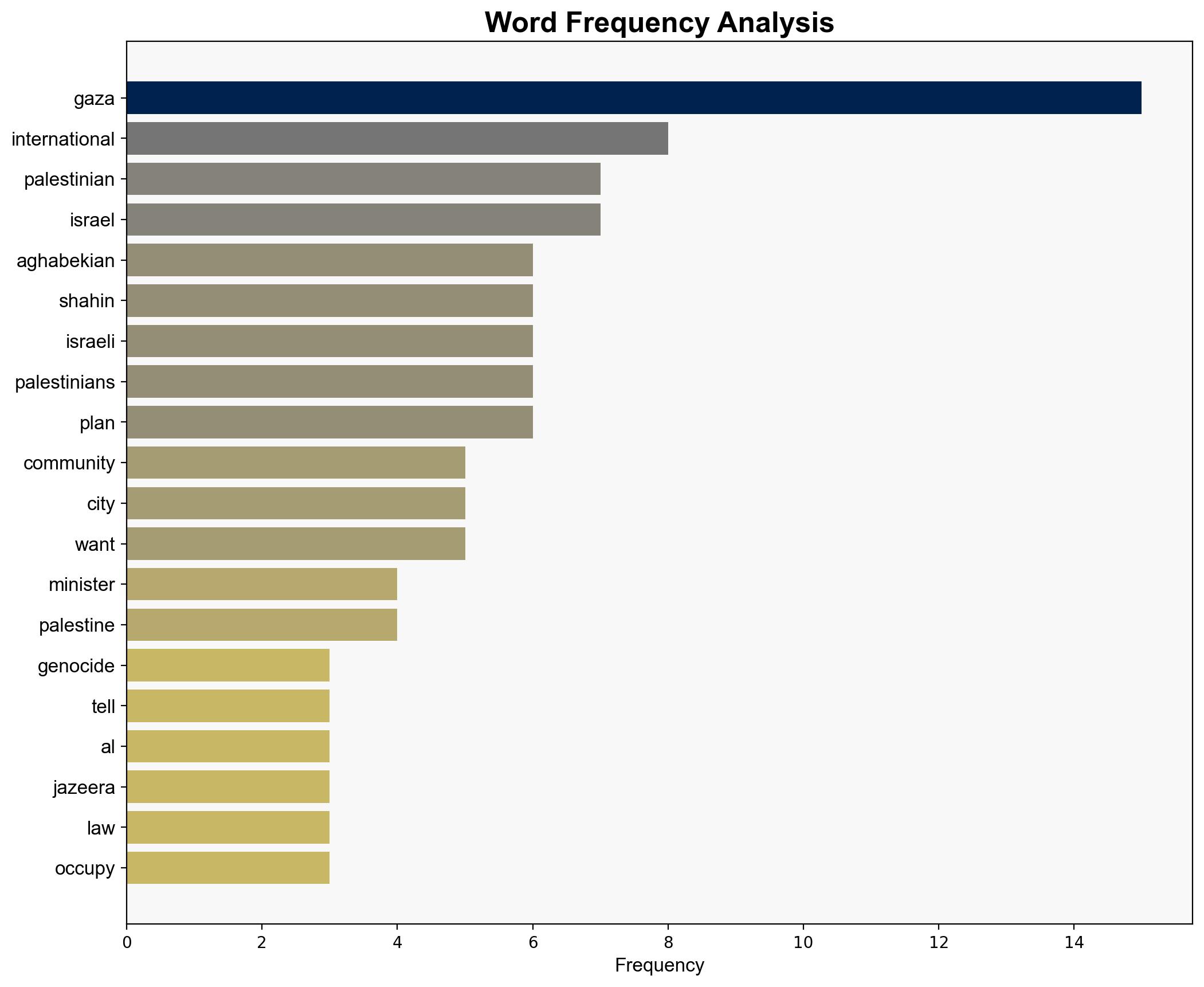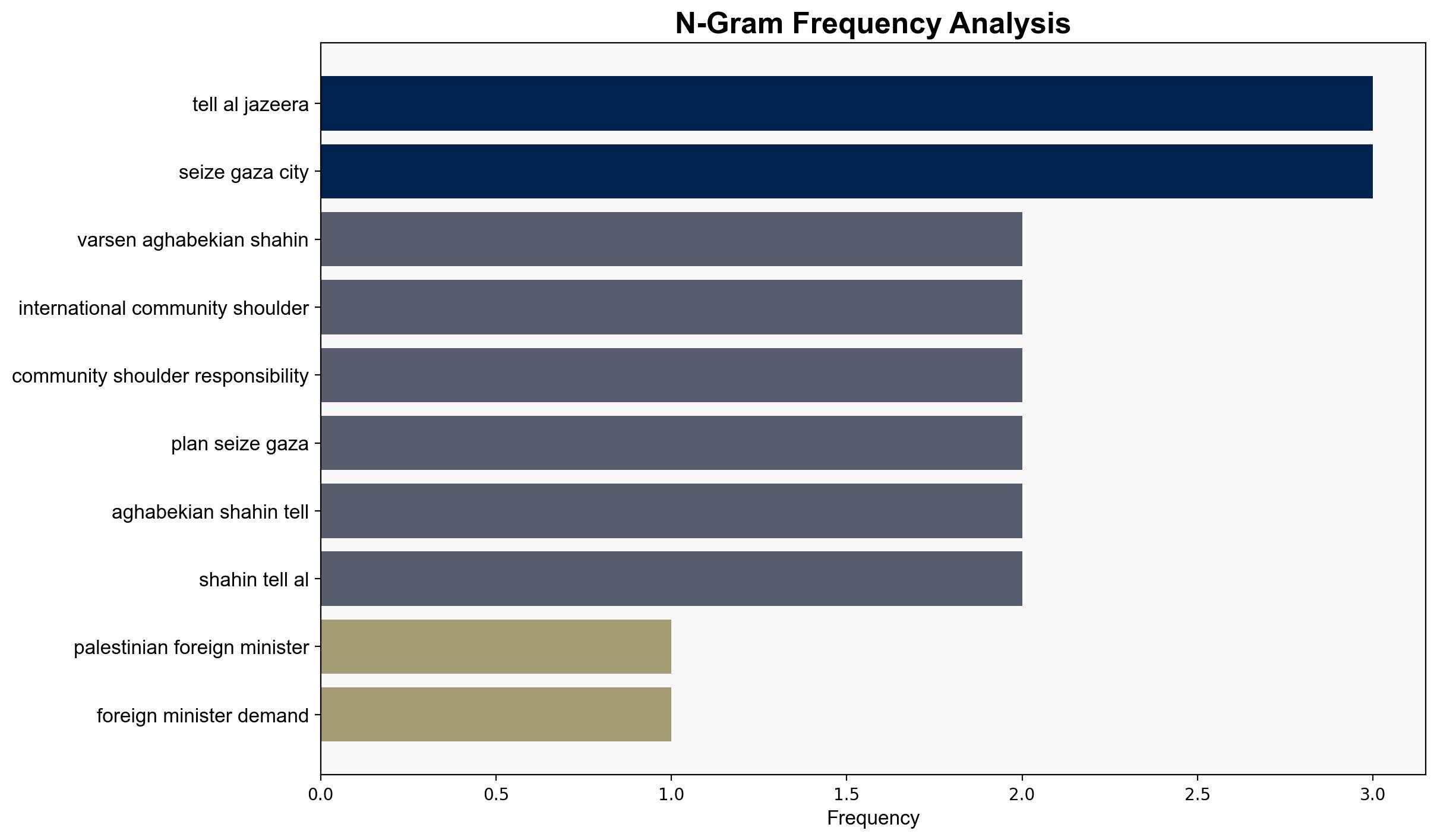Palestinian foreign minister demands action to end Israels Gaza genocide – Al Jazeera English
Published on: 2025-08-09
Intelligence Report: Palestinian foreign minister demands action to end Israels Gaza genocide – Al Jazeera English
1. BLUF (Bottom Line Up Front)
The situation in Gaza is highly volatile, with significant international pressure on Israel to reconsider its actions. The most supported hypothesis suggests that Israel’s actions are part of a broader strategy to assert control over Gaza, potentially leading to increased regional instability. Confidence level: Moderate. Recommended action: Diplomatic engagement and pressure through international bodies to mediate and de-escalate tensions.
2. Competing Hypotheses
1. **Hypothesis A**: Israel’s actions in Gaza are primarily driven by security concerns and the desire to neutralize threats from Hamas. This hypothesis suggests that the military operations are a response to perceived threats and are not intended as a long-term occupation strategy.
2. **Hypothesis B**: Israel’s actions are part of a strategic plan to expand territorial control and weaken Palestinian governance structures. This hypothesis posits that the operations are aligned with a broader expansionist ideology and are not solely about immediate security concerns.
Using ACH 2.0, Hypothesis B is better supported due to the alignment of Israel’s actions with previous expansionist policies and the lack of substantial evidence indicating immediate security threats necessitating such extensive military operations.
3. Key Assumptions and Red Flags
– **Assumptions**:
– Hypothesis A assumes that Israel’s primary motivation is security, which may overlook historical patterns of territorial expansion.
– Hypothesis B assumes a strategic intent behind Israel’s actions, potentially underestimating genuine security concerns.
– **Red Flags**:
– Lack of clear evidence of immediate threats from Gaza that would justify large-scale military operations.
– Potential bias in international reporting, which may influence perceptions of the situation.
– **Blind Spots**:
– Limited insight into internal Israeli decision-making processes.
– Potential underestimation of the impact of international diplomatic pressure on Israel’s actions.
4. Implications and Strategic Risks
– **Regional Instability**: Continued military operations could exacerbate tensions in the Middle East, leading to broader regional conflicts.
– **Humanitarian Crisis**: The displacement of Palestinians and the humanitarian impact could lead to international condemnation and increased support for Palestinian causes.
– **Geopolitical Tensions**: The situation could strain Israel’s relations with key allies, particularly if international pressure mounts for a resolution.
– **Escalation Scenarios**: Potential for increased violence if diplomatic efforts fail, with possible involvement of other regional actors.
5. Recommendations and Outlook
- Engage in multilateral diplomatic efforts to de-escalate tensions and promote dialogue between Israel and Palestinian authorities.
- Encourage international bodies to facilitate humanitarian aid and support for displaced populations in Gaza.
- Scenario Projections:
- **Best Case**: Successful diplomatic intervention leads to a ceasefire and renewed peace talks.
- **Worst Case**: Escalation into broader regional conflict with significant humanitarian and geopolitical consequences.
- **Most Likely**: Continued international pressure results in temporary de-escalation but without a long-term resolution.
6. Key Individuals and Entities
– Varsen Aghabekian Shahin
– Benjamin Netanyahu
– Donald Trump
7. Thematic Tags
national security threats, regional focus, geopolitical strategy, humanitarian crisis





